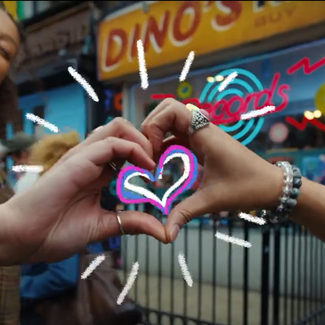
How To Crack Gen Z: Less Alphabet Soup, More Connection
Leo UK's latest Pop Pulse report focuses on generational differences, and asks how brands can relate to the generation currently entering the workforce
17 November 2025
Gen Z: Too cynical. In need of too much authenticity. Way too online. Way too woke. So how on earth can advertisers who grew up with landlines and dial-up internet reach them?
Every generation has had quibbles about their aging parents and the feckless youth. How to bridge these divides and achieve cohesion is a puzzle that has baffled generation after generation. The philosopher Socrates is thought to have complained about the bad-mannered youth.
Now, the latest edition of Leo UK’s latest PopPulse report seeks to crack the code through a range of cross-generational interviews. Following on from last year’s report about how brands can relate to people in an age of crisis, this year’s research looked at how to crack Gen Z and be relevant for the future.
Speaking as a panellist at this year’s PopFest, alongside author and journalist Zing Tsjeng and comedian and cultural commentator Benedict Townsend, Professor Bobby Duffy, professor of public policy and and director of the policy institute at King's College London said: “My biggest worry for the generations is not conflict, it’s separation”.
The notion of generational boundaries was conceived by the Hungarian-German sociologist Karl Mannheim. His 1928 essay 'The Problem Of Generations' proposed that the socio-historical events of a particular time and place could shape the consciousness of generations, for those it impacted in their childhood and young adulthood.
Due to the fast pace of social and technological change in the 20th Century, theorists William Strauss and Neil Howe theorised that society moved in predictable cycles, with each generation developing its own set of attitudes, behaviours and cultural preferences.
While dividing millions of people into generational categories has long been used as a shortcut by advertisers to identify consumers - for example, nostalgia marketing: New Wave aimed at Gen X, MySpace at millennials – it has also been criticised for oversimplifying the situation.
And that can be seen in the statistics from the report, which surveyed around 2,000 adults:
The majority (77 per cent) of adults older than 28 say that they have taken advice from a member of Gen Z (aged 13-28).
Almost all (96 per cent) of Gen Z participants agree that different generations should be open to learning from one another
Most Gen Z particpants (72 per cent) said that they would like to spend more time with older generations
Despite the fact that only 21 per cent of adults feel confident about the country’s future, some 2/3 of Gen Z see themselves as hopeful and optimistic
Discussing the report, the panellists shared three key insights:
Gen Z is experiencing ‘generational gloom’ – but it heightens their hunger for connection
Gen Z is actively seeking connection. Structural separations - such as hybrid working and a lack of community-minded third spaces make this harder to achieve than it has been in the past.
Professor Bobby Duffy highlights that while intergenerational connections within families have grown stronger – for example, parents connecting more with their kids than they did in the 60s and 70s – what has also happened alongside that is a massive separation of the generations outside the family unit.
“That is really important: what is the role of brands? Not just as glue within a family but across society, because we’re losing a lot of the places where that connection would have been naturally made before,” he posits.
Gen Z rejects brands that ‘try to be like them’
While Gen Z is seeking connection, they can see through inauthenticity.
“This idea of being unashamedly yourself is one that’s absolutely imbuing so much of what McDonald’s is doing right now, not just from a comms perspective. Really, the whole business of rallying around this attitude and body language as a business,” explains Leo UK's chief strategy officer Lilli English.
The brand does this through initiatives like 'Make It Yours', tapping into nicknames that are actually used, such as 'Maccers', and focusing on genuine shared social experiences.
For former Vice editor Tsjeng, Gen Z look to brands like McDonald’s or their favourite artists – to prove themselves rather than dictate. They have a “receipts culture” and are cynical and aware of marketing tricks, and they want brands to be self-aware and show their values.
She also points to the success of New York mayor Zoran Mamdani's election campaign, highlighting how he was authentic and self-aware across media interviews, including on right-wing channels.
Gen Z favours levity and the kooky
Also reflected in the report is the fact that Gen Z has little interest in that which is over-polished.
For English, it’s crucial to be a bit kooky/weird/odd/unhinged, and "perhaps on the fringes of niche content”. She argues that “we need a bit of levity
Ben Townsend argues that for Gen Zers, brands being completely true to their stories is crucial.
“Authenticity is sort of the number one thing for Gen Z, that’s the North Star. You can basically do whatever you want, as long as it’s in some way authentic to you,” he adds.
He explains that one way of responding to Gen Z cynicism is to get into DMs and have a conversation with a touch of levity, highlighting and discussing shared values.




